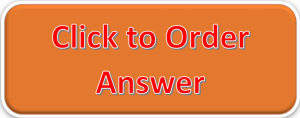Religion and Ethics
Religion and Ethics
Book: Rachels, S., & Rachels, J. (2019). The elements of moral philosophy (9th ed.). Mcgraw-Hill Education.
Required Resources
Read/review the following resources for this activity:
- Textbook: Chapters 3, 4
- Lesson
- Minimum of 2 scholarly sources (in addition to the textbook
Instructions
Review the following ethical dilemmas:
- John Doe has decided to clone himself. He is sterile. He cannot find anyone to marry him. He wishes to have children. He knows that he will not be able to love a child that is adopted or not connected directly to him biologically. He will be making use of a new procedure that involves taking his skin cells to produce a twin. The twin starts out as an embryo and grows into a child. The child in this case will have the same genetic information as John Doe. John Doe and his child will be twins.
- Jane Doe is eighteen. For as long as she can remember she has been sexually attracted to other females. Her parents belong to a religion that has a religious text stating that God forbids one to be a lesbian. This religion goes on further to say that lesbians will be punished in the afterlife. Jane Doe is debating whether she should tell her parents about her sexual attraction. She has not yet decided if she should come out to her parents and live as a lesbian now that she is a legal adult.
- Joe and Mary are a couple. Before becoming sterile, they had a child. This child died of a rare disease. Joe and Mary miss their child terribly. They have heard that there is a new IVF procedure that can ensure that they can have another child. However, their religion forbids using IVF.
Use the resources assigned for this week and additional research,
Instructions
Select two of the situations above and then address 2 of the following:
- What is the relation between ethics and religion? Formulate and investigate the relation.
- For each case, determine the ethical path of conduct. Then, determine what paths of conduct would be unethical
- For each case, what would an emotivism say to appraise what you determine is the ethical form of conduct?
- For each case, would a natural law ethicist agree with what you say is the ethical form of conduct? Why or why not?
- Articulate, explain, and evaluate in each case an approach that makes use of divine command ethics.
Writing Requirements (APA format)
- Length: 2-3 pages (not including title page or references page)
- 1-inch margins
- Double spaced
- 12-point Times New Roman font
- Title page
- References page (minimum of 2 scholarly sources)


